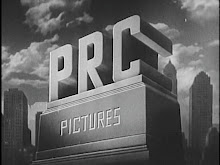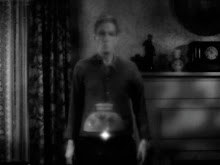
"And suddenly she turned to face me." It's hard to shake that indelible image of Ann Savage as Vera in Detour waking from sleep and turning her head toward the camera with a feral glare. That look begs me to run my hand through that greasy hair while she scratches out my eyes. Can't blame Tom Neal for acting like a pussy-whipped sucker around this cat. She's scary. This is one of the greatest B-movie performances ever. Ms. Savage died on Christmas day 2008 at the age of 87. I commend Guy Maddin for getting one last performance from her in My Winnipeg---I'd love to see this. Till then, I'm watching Screen Guild Productions' western Renegade Girl, released December 25th of 1946, a fine showcase for Ms. Savage.
Confederate Jean Shelby (Savage) is torn by a desire to kill her brother's murderer, Chief White Cloud, and to marry the man she loves, who happens to be a Union officer. Separated from her love, she becomes hellbent on vengeance, making a deal to marry the man in her group of bandits who kills White Cloud. While she has the horny raiders under her spell, she has made herself the Yankee's most wanted woman.

There's a kinkiness to this film, most pronounced in a scene where Jean is giving a pep talk to her marauders. As she pulls open her blouse to show them the knife scar White Cloud gave her, it cuts to a reverse shot of the grubby men edging in for a look. Jean is tougher than the men, wide-eyed psychotic on the trail of vengeance, but also a quivering mass of regret. "Everything I touch dies...dies," she repeats stumbling through the woods.

Her death, in the arms of her love, is heartbreaking. "I would have wrecked your life," she tells her man in a moment of clarity far removed from Detour's Vera. I almost feel like replying, "I wouldn't have it any other way."

























